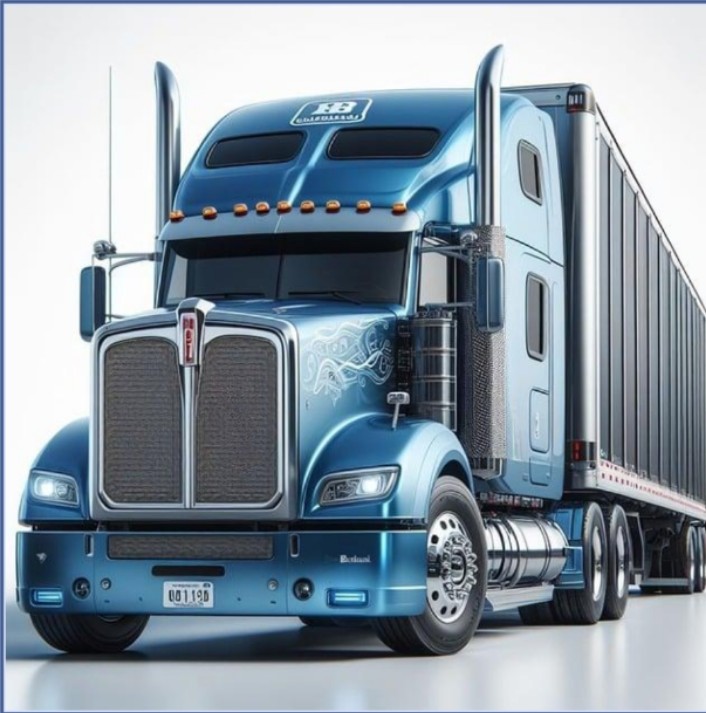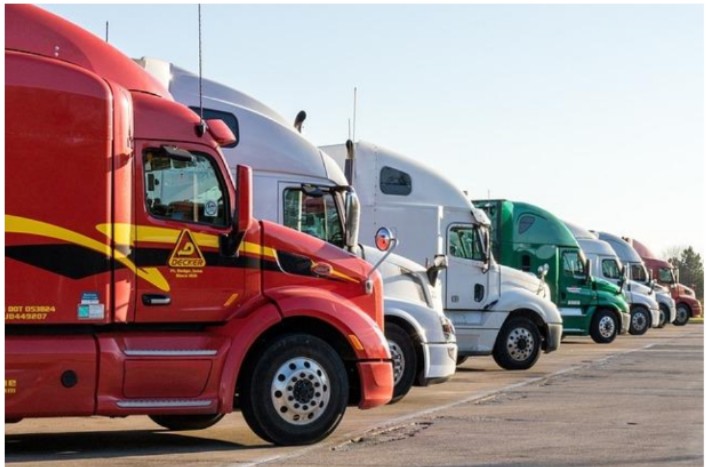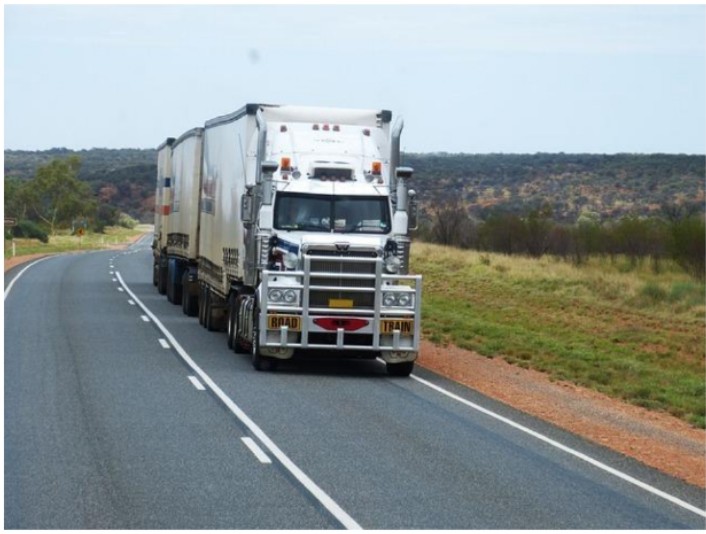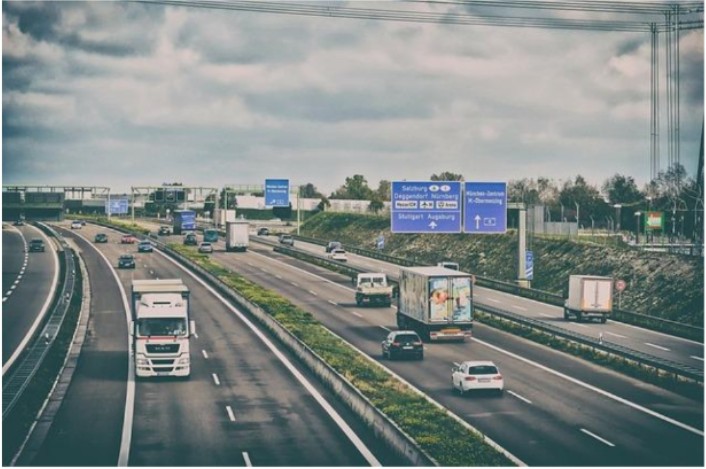Take a moment and picture an economy without the trucking industry!
First off, imports would be stranded at seaports or airports for months, depending on how they arrived in the country. Besides, essential commodities like medical equipment and industrial machinery would take forever to get to their intended destinations.
What is the net effect of these delays? A massive slowdown of a country’s productivity.
If you’ve never thought of trucking as a critical sector of the global economy, this article will help change your perspective. Here are the various ways the trucking industry is driving the economy in 2024.

1. The Trucking Industry Aids Cargo Delivery
There are four different freighting modes – air freight, sea freight, rail freight, and road freight.
Most freighting scenarios involve intermodal shipping, where cargo arrives in the country by air or sea and is ferried to respective clients by rail or road. Now, trucks are the most reliable mode of transportation for road freight.
The trucking industry keeps the supply chain going, ensuring that commodities get to their intended destinations on time. Multiple trucking news indicates that the economy would grind to a halt without trucks on the road.
Through the trucking industry, manufacturing plants can obtain the raw materials they require to produce finished goods. The sector also ensures the free flow of basic commodities, including food, clothing, medical supplies, household items, and fuel.
2. The Trucking Industry Is a Major Employer
Reducing the unemployment burden remains a monumental challenge for many countries. Fortunately, the trucking industry has made a significant contribution in this area.
Not only is trucking one of the most profitable and vibrant transportation sectors. It also employs millions directly and indirectly.
As of 2022, there were some 3.54 million registered truck drivers in the United States alone. Collectively, the industry employed over 8.4 million, making it one of the US’ largest employers.
While many consider truck drivers to be the sole beneficiaries of the trucking industry, various other professions have benefited from this sector. Those include mechanics, fleet managers, vehicular tracking technicians, and fuel attendants. Plus, with support from companies like OTR Solutions, trucking companies are able to support their truckers with fuel cards, invoice factoring, and fuel advances.
For large fleet companies, we also have customer care representatives, accountants, public relations officers, and human resource personnel benefiting from the thriving trucking industry.

3. Other Industries Rely On Trucking
It’s difficult to think of an industry that doesn’t depend on trucking services in some way. Different retail outlets rely on truckers to deliver their stock and inventory when required.
When we consider the interplay between trucking and the retail industry, perhaps the first images that spring to mind are of home appliances, automotive, and industrial machinery. However, even that little chocolate bar required trucking services to be delivered to your local candy shop.
Businesses that rely entirely on imports are the biggest beneficiaries of the trucking industry.
When goods arrive from overseas, they land in airports or ports. They must then be ferried by trucks to different business premises, where they’re either processed further or packaged as finished products.
Mining, construction, and forestry are other major sectors that rely heavily on trucking.
4. Trucking Ensures Uniform Economic Development
The trucking industry serves as a bridge between manufacturers or importers and retailers or final consumers. This can have more implications besides simply availing merchandise to the businesses that need them.
Without truckers, most companies would be concentrated around manufacturing plants and import zones.
For instance, it would make more economic sense for saw millers to set up places of business near logging sites. After all, trucks are the only road vessels that can safely transport bulky timber.
Similarly, urban developments would be concentrated around cement manufacturing zones. How else would bulky cement bags be shipped to distant construction sites?
Trucking prevents such a chaotic layout, ensuring economic developments don’t only happen in selected hotspots of a country to the detriment of others.

5. The Trucking Industry Helps Build Infrastructure
Truckers aren’t only concerned with transporting commodities to different destinations. They also contribute immensely to infrastructure development.
It’s important to note that trucks aren’t limited to busy highways. They may occasionally venture off-road, depending on a freight client’s location.
As they travel thousands of miles, truckers gather critical data on the general state of infrastructure on the routes they ply. Such information is then shared with relevant authorities to determine the roads that require urgent repair, ongoing maintenance, signage installation, etc.
Since the trucking company employs millions and aids economic development in other ways, any forward-thinking government would be keen to improve the road networks used by trucks.
6. The Trucking Industry Can Be Critical During Disaster Response
Unless you were born post-COVID-19, you already understand the significant role the trucking industry can play in periods of major disasters.
Truckers were one of the “essential service providers” during the COVID-19 pandemic. They ensured the timely delivery of emergency medical supplies, including testing kits and face masks.
Truckers also helped contain the spread of the virus by delivering food to local neighborhoods, thereby minimizing social interactions.
Without these services, more people would have died from both the virus and associated factors like malnutrition.
But even before COVID-19, truckers already played a pivotal role during disasters. Firefighting and flood evacuations are just some of the numerous disaster management scenarios that depend heavily on the trucking industry.

Final Word
A world without the trucking industry is simply unfathomable. Therefore, it behooves every government to nurture this critical sector through appropriate interventions, such as infrastructure development and favorable taxation.




